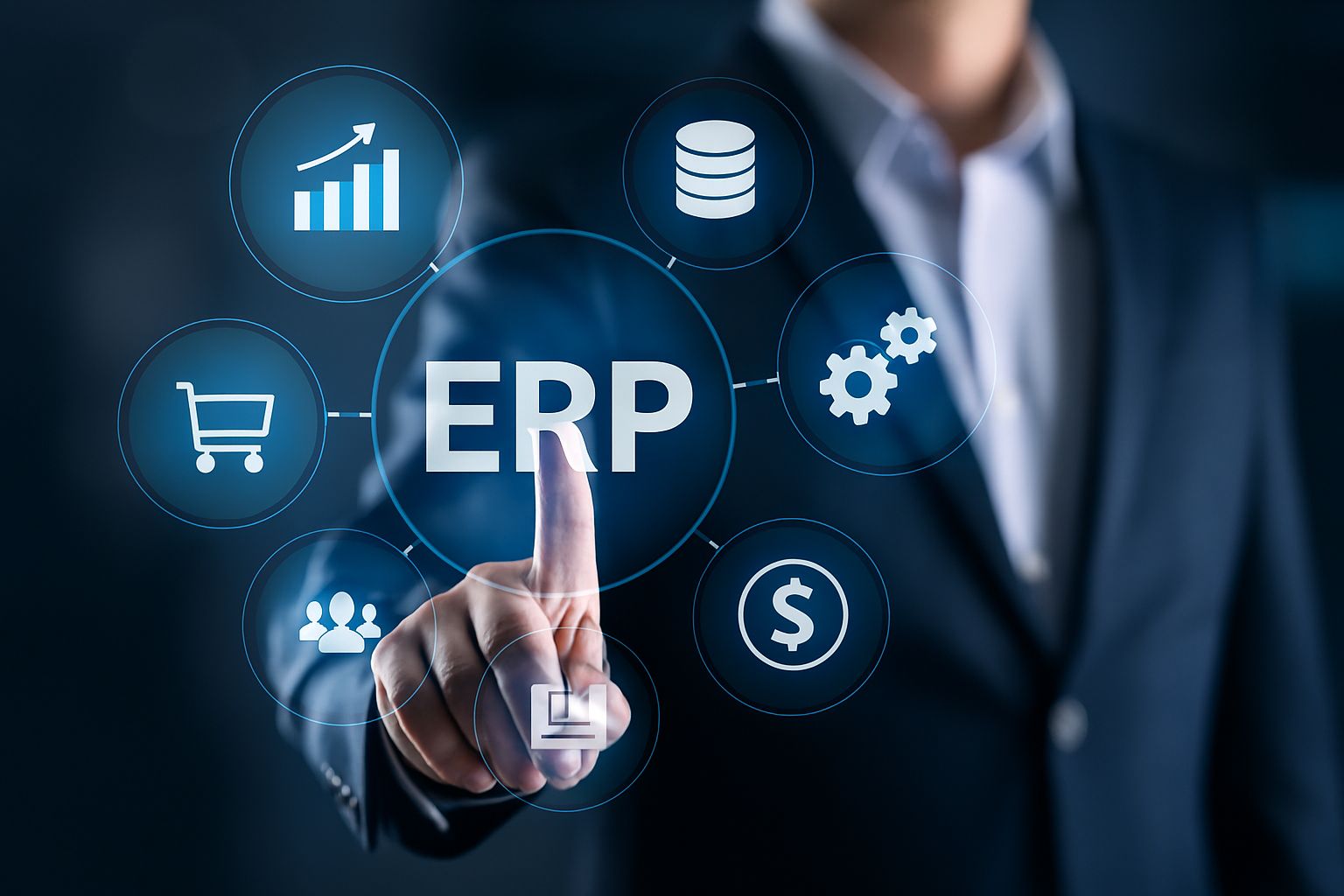
Insights
Why Businesses Need Enterprise Resource Planning (ERP)

Why Businesses Need ERP: Boosting Sales, Productivity, and Growth
In today’s business world, competition is tougher than ever, and customers expect faster service, better quality, and personalized experiences. To meet these demands, many companies are turning to Enterprise Resource Planning (ERP) systems.
ERP is not just software—it’s a powerful tool that integrates different parts of a business (sales, finance, HR, supply chain, inventory, customer service, etc.) into one central system. This means businesses can run more smoothly, avoid mistakes, and make better decisions.
Let’s explore why businesses need ERP and how it helps them increase sales, improve productivity, and achieve long-term growth.
1. ERP Helps Businesses Increase Sales
Sales teams thrive when they have the right information at the right time. ERP makes this possible by connecting customer data, sales pipelines, and inventory in one place.
- Better Customer Insights: ERP systems store customer history, preferences, and buying behavior, helping businesses provide personalized offers and close more deals.
- Real-Time Inventory: Sales reps know exactly what products are available, avoiding overpromising or delays.
- Faster Order Processing: From quote to payment, ERP automates the sales process, making transactions smoother and quicker.
With ERP, businesses not only sell more but also build stronger relationships with customers.
2. ERP Improves Productivity
One of the biggest benefits of ERP is its ability to save time and reduce manual work. Instead of switching between different systems or spreadsheets, employees work from a single, integrated platform.
- Automation of Routine Tasks: Tasks like invoicing, payroll, or stock updates are done automatically.
- Cross-Department Collaboration: Finance, operations, and sales teams can access the same real-time data, eliminating delays and confusion.
- Mobile Access: Many modern ERPs allow employees to work from anywhere, keeping productivity high even outside the office.
This reduces errors, speeds up workflows, and allows staff to focus on more valuable tasks.
3. ERP Enhances Customer Experience
Customer satisfaction is key to long-term success, and ERP plays a big role here.
- Faster Response Times: With centralized information, customer service teams can quickly answer questions about orders, deliveries, or invoices.
- Accurate Deliveries: ERP systems reduce mistakes in order fulfillment, meaning customers get what they want, when they want it.
- Seamless Communication: Sales and service teams have a full view of the customer journey, allowing them to provide personalized support.
Happy customers often become repeat customers, which directly drives business growth.
4. ERP Supports Better Decision-Making
ERP systems are data-driven, giving business leaders valuable insights into performance and opportunities.
- Real-Time Reporting: Track sales, expenses, and productivity instantly.
- Forecasting: Use past data to predict demand, plan budgets, and set sales targets.
- Business Intelligence Tools: Many ERP systems come with dashboards that help managers spot trends and make faster decisions.
This means leaders can respond quickly to challenges and stay ahead of competitors.
5. ERP Ensures Scalability and Growth
As businesses grow, managing operations manually or with separate systems becomes overwhelming. ERP provides the foundation for sustainable growth.
- Handles Complexity: Whether you add new products, expand to new markets, or hire more staff, ERP scales with your business.
- Regulatory Compliance: Many ERP systems help businesses stay compliant with tax laws and industry regulations.
- Cost Efficiency: By reducing waste, duplication, and inefficiency, ERP helps businesses save money while growing.
Final Thoughts
ERP is no longer just for large corporations—today, even small and medium-sized businesses can benefit from it. By adopting ERP, companies can:
✅ Increase sales through smarter customer management and faster order processing
✅ Boost productivity with automation and collaboration
✅ Enhance customer experience by delivering accuracy and speed
✅ Make better decisions with real-time data and insights
✅ Support long-term growth with a scalable, integrated system
In short, ERP is the backbone of modern business success. Companies that invest in it position themselves for efficiency, profitability, and a stronger competitive edge.Z
Try Zygram ERP and see why your business needs ERP.

